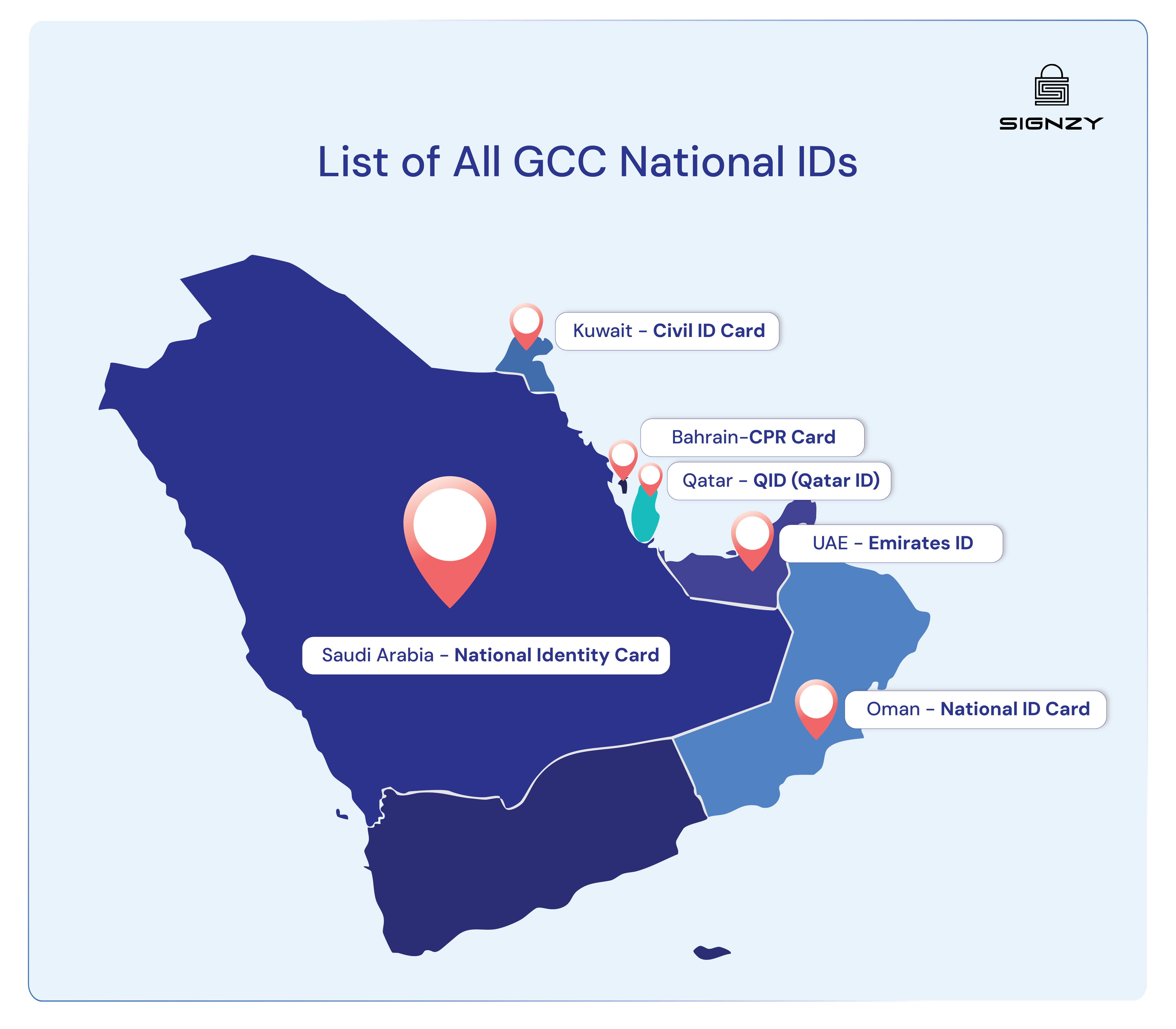- Each GCC country maintains its own unique national identification system with distinct formats, security features, and administrative processes.
- Government-issued national IDs undergo rigorous verification processes, making them the gold standard for identity authentication across the Gulf region.
- All six GCC member states require residents to obtain national identification for official transactions and services.
Working across the Gulf states has taught me so much about how each country approaches national identification. Every GCC nation has developed its own unique system for national IDs, and there’s actually some fascinating variety in how Bahrain, Kuwait, Oman, Qatar, Saudi Arabia, and the UAE structure their documentation.
I’ve had the chance to work with these different ID formats over the years, and I thought it would be useful to share what I’ve learned. Whether you’re in banking, HR, government services, or just curious about how identification works across the region, this collection brings together the key details about each country’s approach.
Each system reflects the country’s particular needs and priorities, and understanding these differences can really help when you’re working across borders or supporting people from different GCC states.
List of All GCC National IDs
Here’s what you’ll encounter when working across the Gulf states. Each country has its main national ID system, and while they look different and work differently, they all serve the same basic purpose of being the primary identity document everyone relies on.

| Country | National ID | Description |
| Bahrain | CPR Card | Smart card with a 9-digit number, works in Arabic and English, and has biometric features built in. |
| Kuwait | Civil ID Card | Everyone who lives there needs one 12-digit number, biometric data included |
| Oman | National ID Card | 8-digit system, bilingual design, electronic chip for verification |
| Qatar | QID (Qatar ID) | An 11-digit number, required for everyone over 18, connects to their government services |
| Saudi Arabia | National Identity Card | 10-digit number, works with their Absher digital system, has strong security features |
| UAE | Emirates ID | 15-digit number, smart card that works across different government services |
How Can Businesses Use National IDs for Growth?
Government-issued national IDs are incredibly reliable because of what someone has to go through to get one. We’re talking weeks of paperwork, background checks, biometric scans, and usually showing up in person multiple times. Governments don’t hand these out lightly.
That’s exactly why these IDs are so valuable when you’re trying to verify someone’s identity. The government already did the heavy lifting – they checked everything before issuing the card. When someone shows you their national ID, you’re seeing the result of a verification process that would cost you hundreds of dollars to replicate on your own.
For companies expanding into new GCC markets, this creates a real opportunity. Instead of building complex verification systems from scratch, you can tap into these existing government frameworks. The challenge is doing this at scale – manually checking IDs works fine for small operations, but when you’re processing hundreds or thousands of verifications, you need something automated.
From here, you have two routes:
- Hire an army of compliance specialists: You could build internal teams to manually verify each ID, cross-reference government databases, and manage the paperwork. This means hiring locally in each market, training staff on different ID formats, and dealing with the inevitable human errors and processing delays.
- Use automation solutions: RegTech platforms like Signzy offer API-based verification that connects directly with GCC government databases, letting you process thousands of ID checks instantly while maintaining the same accuracy as manual verification but without the operational overhead.
Signzy can do a lot more than what we described in those two lines above. Book a demo to know more. If you’re planning expansion into multiple Gulf markets, it’s worth seeing how our unified approach could streamline your entire onboarding process. Book a quick demo here to know more!
FAQs
What is the GCC, and which countries are included?
The Gulf Cooperation Council includes six countries: Bahrain, Kuwait, Oman, Qatar, Saudi Arabia, and the United Arab Emirates, all located in the Arabian Peninsula region.
Can I use one GCC national ID in another GCC country?
No, each country issues its own national ID. However, GCC citizens can travel between member states using their national IDs instead of passports.
Are GCC national IDs mandatory for all residents?
Yes, most GCC countries require all residents above a certain age (usually 15-18) to obtain and carry national identification cards.
What information is stored on GCC national ID cards?
Standard information includes full name, ID number, date of birth, nationality, photograph, and biometric data like fingerprints or facial recognition features.
Can businesses verify GCC national IDs online?
Yes, many countries offer digital verification systems, and third-party RegTech platforms like Signzy provide API access to verify IDs across multiple GCC states.













